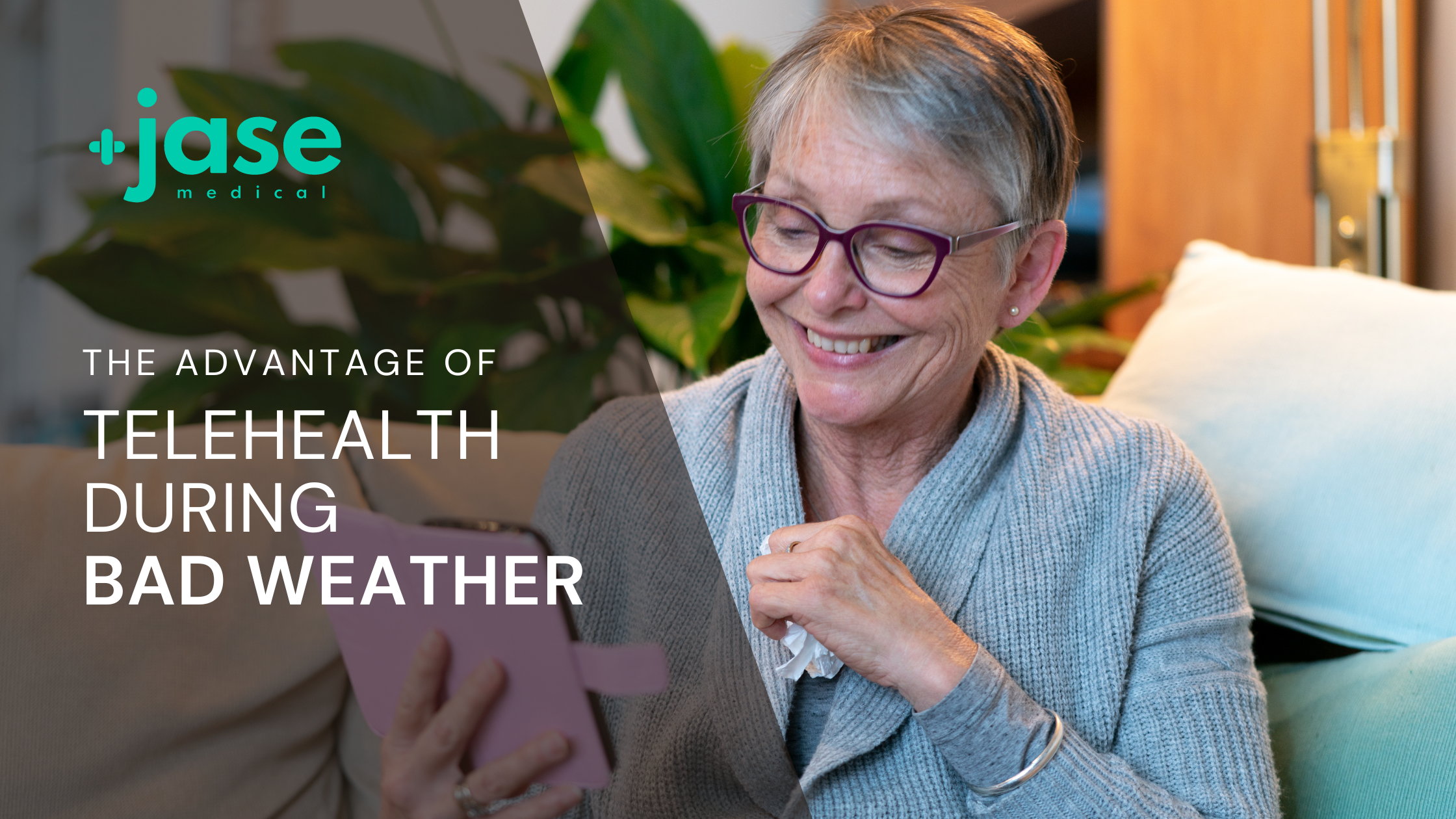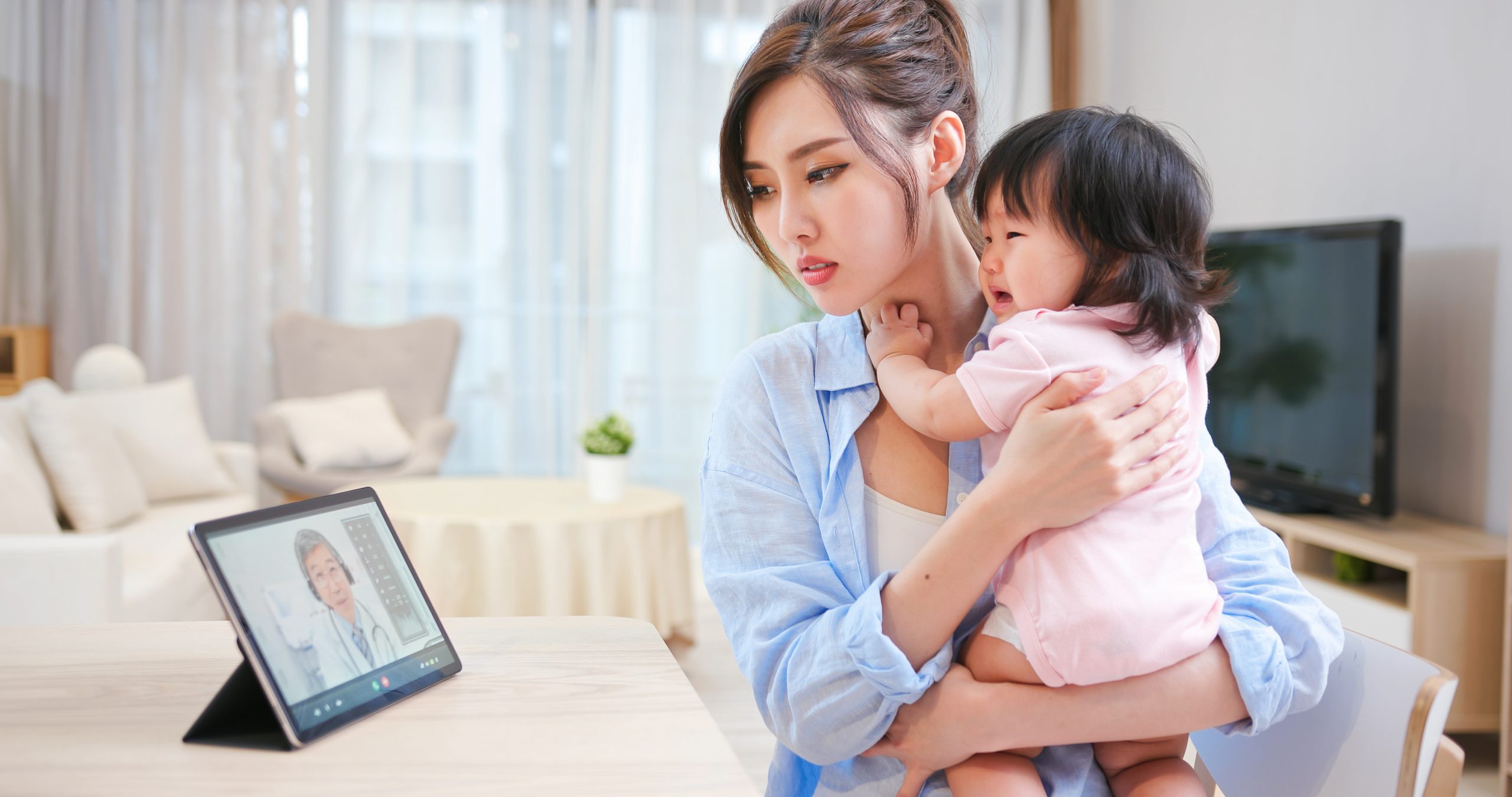If you’re considering Jase, chances are you’ve paused and thought, “This makes sense, but I still have a few questions.”You’re not alone. Here are the most common ones we hear, answered plainly. Is this really doctor-prescribed? Yes. Every Jase order is reviewed by a...
The Advantage of Telehealth During Bad Weather

The massive influx of historic, record-breaking weather that has swept the country has left many communities reeling. Power outages, impassable or treacherous road conditions illuminates how fragile our society is when infrastructure breaks down. Hopefully you have your basic over the counter medicines well stocked along with prescription medicines. You had topped off your preps, food, extra water, and a small indoor safe heater with fuel in case of power failure.
If you haven’t considered or don’t have a generator check out the Jackery portable power station.. It has USB plug ins to keep cellphones recharged and can take care of basic electrical needs, such as keeping a min fridge cold, running small appliances and even your laptop. You can recharge it via AC outlet, solar panel or car outlet. This could prove invaluable during a power outage, by keeping your phone recharged to monitor weather, check in with family members and neighbors, and if needed, to contact your care provider in case of minor emergency or illness.
Medical preparedness
During inclement weather, you may not have access to in person, non-emergent health care. Power lines or trees may be downed and block the road, snow and ice storms can make a trip to the urgent care or clinic outright dangerous or impassable. Even Southern California experienced blizzard conditions and Portland, Oregon set a record for the second most snowfall to date. In Oklahoma, tornados have left scores of communities homeless, many injured and without vital infrastructure needed to maintain adequate living conditions. During times such as these EMS workers are spread thin due to wrecks and other health emergencies, road crews can’t keep up with the massive amounts of snowfall and other road hazards. Staying home can be the safest and most prudent thing to do until after the storm passes and infrastructure is restored.
By now you should have medicines that you use on a regular basis, a well-stocked first aid kit and a Jase case (which covers a broad variety of infections) specifically for every member of your family.
Telehealth can help bridge the gap

Sometimes it only takes a phone call to the doctor’s office to answer a question or seek guidance for you or your loved one’s illness or injury. Other times a clinic visit would be preferable, however may not be immediately possible. Telehealth is an effective option for scenarios like this. For example, if your child had been exposed to strep throat while at school and has developed a sore throat while at home for snow days, a virtual visit via telehealth can determine if an antibiotic is needed. A virtual visit can keep you and your child safe, warm and not exposed to the elements.
Telehealth isn’t ideal for every injury or illness, however, if you are stuck at home with no availability to pharmacy or medical care, it is a valuable tool that has proven to be highly successful in diagnosing and resolving minor emergencies and illnesses.
Some common telehealth visits include:
- Coughs
- Colds and influenza symptoms
- Earaches
- Stomach aches
- Diarrhea or constipation
- Nausea and vomiting
- Skin rashes
- Sore throats
- Conjunctivitis
- Sprains or strains
- Urinary tract symptoms (until you can get to the clinic for an urinalysis)
- Food poisoning
Non emergent visits can include chronic illness visits, prescription refills, weight checks, blood pressure checks and review labs.
How to access telehealth
While telehealth can be a valuable tool to access healthcare, nothing replaces the in person visit to your healthcare provider. Telehealth should be viewed as another valuable tool in your preparedness toolkit when healthcare isn’t accessible.
An increasing number of insurances are allowing telehealth visits. Even Medicare pays for telehealth visits. Check with your insurance company for a list of providers that offer telehealth as an option to in person visits.
Most all regions across the United States offer telehealth services as an alternative to in person visits. Check with your local health systems services, your care provider or health department.
- Brooke Lounsbury, RN
Medical Content Writer
Lifesaving Medications
Recent Posts
Keeping you informed and safe.
FAQ: Our most commonly asked questions about Jase
Medical Readiness: What Really Kills First
When Disaster Strikes, It’s Not Hunger or Thirst That Takes the First Lives In every disaster zone, from hurricanes in the Caribbean to war zones in Ukraine, the pattern is the same. People worry about food and water, but it’s infection that kills first. A small wound...
Exploring Dr. William Makis’ Hybrid Orthomolecular Cancer Protocol: Focus on Ivermectin and Mebendazole/Fenbendazole
Exploring Dr. William Makis’ Hybrid Orthomolecular Cancer Protocol: Focus on Ivermectin and Mebendazole/Fenbendazole *Disclaimer: This article is for educational purposes and does not constitute medical advice. Always seek professional guidance.* In the evolving...



